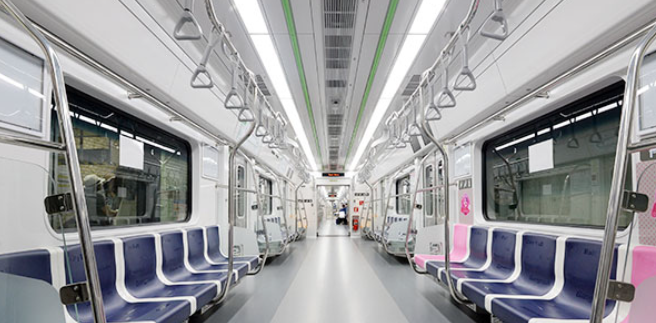
(Photo : https://world.seoul.go.kr)
South Korea's Commute Chaos Amid Railway Protest.
- Seoul's subway services are disrupted due to a "work-to-rule" protest by railway workers demanding higher pay and increased workforce.
- The Korean Railway Workers' Union plans an indefinite general strike next month, potentially escalating the situation.
- KORAIL has established an emergency task force to manage the situation and minimize inconvenience to passengers.
- The global community is closely watching the situation, as the outcome could impact railway workers and public transportation systems worldwide.
In a recent development that has disrupted the daily commute in South Korea's capital, railway workers have initiated a work-to-rule protest. This protest has led to significant delays in subway services across the capital area, causing inconvenience to the daily commuters. The protest was launched on Monday, and the effects were felt immediately with delays ranging from 5 to 20 minutes on various subway lines.
The Korean Railway Workers' Union, the body behind this protest, has demanded higher pay and an increase in the workforce. The Union has also announced plans to commence an indefinite general strike early next month, as reported by Yonhap news agency. This move could potentially escalate the situation, causing further disruptions in the public transportation system.
The subway lines affected by this protest include the capital area subway lines 1, 3, and 4, along with the Suin-Bundang, Gyeongui-Central, and Seohae lines. As per the information provided by the Korea Railroad Corp. (KORAIL), the delays were recorded as of 8 a.m. on the day of the protest.
KORAIL's Response and Historical Precedents
In response to this situation, KORAIL has taken proactive measures to minimize the inconvenience caused to the passengers. An emergency task force was established the previous day to ensure a prompt response system. The task force is expected to manage the situation effectively and reduce the impact of the protest on the daily commuters.
KORAIL has also made it clear that any violations of company rules or the law by the striking workers will be dealt with strictly. This statement underlines the seriousness of the situation and the potential consequences for the protesting workers.
This is not the first time that railway workers have resorted to such measures. In the past, similar protests have been launched by railway workers in various parts of the world, demanding better pay and working conditions. For instance, in 2019, French railway workers staged a strike against planned pension reforms, causing widespread disruptions in train services. Similarly, in 2018, railway workers in the UK went on strike over issues related to pay and safety, leading to significant delays and cancellations.
Global Implications and Future Developments
Such protests highlight the ongoing issues faced by railway workers globally. They underscore the need for better pay, improved working conditions, and a larger workforce to manage the increasing demands of public transportation systems.
In conclusion, the work-to-rule protest by South Korean Railway workers is a significant development that has disrupted subway services in the capital area. The situation is being closely monitored by KORAIL, which has set up an emergency task force to manage the situation. The potential for an indefinite general strike next month adds to the gravity of the situation.
It remains to be seen how this situation will unfold and what measures will be taken to address the demands of the protesting workers. The global community will be watching closely, as the outcome could have far-reaching implications for railway workers and public transportation systems worldwide.
* This is a contributed article and this content does not necessarily represent the views of btin.co.in









